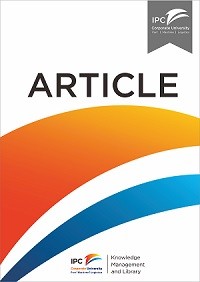Article
The impact of coupled-consolidation: experiences from the Irish food industry
The Irish food industry is of significant importance to the Irish economy. Given its dependence on UK multiple retailers, their supply chain management practices have considerable implications for the whole of the Irish economy. Retailers’ attempts at improving efficiency at their regional distribution centres have resulted in the growing use of consolidation centres whereby food products from several manufacturers are consolidated into full loads for delivery into RDCs. Results of three case studies suggest that the use of a particular form of consolidation (i.e. coupled-consolidation where in-bound logistics are coupled with consolidation services) results in the imposition of costs, especially in terms of lost flexibility, to food manufacturers. The distribution of these costs is asymmetric, with smaller firms bearing the greater costs.
Ketersediaan
Informasi Detail
- Judul Seri
-
Supply Chain Management: An International Journal
- No. Panggil
-
ATC LO REI t
- Penerbit
- United Kingdom : Emerald., 1999
- Deskripsi Fisik
-
12 p.
- Bahasa
-
English
- ISBN/ISSN
-
-
- Klasifikasi
-
LO
- Tipe Isi
-
-
- Tipe Media
-
-
- Tipe Pembawa
-
online resource
- Edisi
-
Volume 4 · Number 2 · 1999
- Subjek
- Info Detail Spesifik
-
-
- Pernyataan Tanggungjawab
-
Paul O Reilly
Versi lain/terkait
| Judul | Edisi | Bahasa |
|---|---|---|
| An RFRS that combines RFID and CBR technologies | Vol. 112 No. 3, 2012 pp. 385-404 | id |
| Co-Operation In Channels Of Distribution: Physical Distribution Leads The Way | Vol. 26 Iss 5 | en |
| Container terminals and cargo systems : design, operations management, and logistics control issues | en | |
| Laporan pelaksanaan pelatihan standard operating procedure (SOP) | id | |
| Building a major transport infrastructure in Hong Kong in the historical context of the 1997 retrocession | Vol. 3 No. 2, 2008 | en |
| Logistics integration processes in the food industry | Vol. 36 No. 3, 2006 | en |
| Radio frequency identification (RFID) in China: opportunities and challenges | Vol. 33 No. 12, 2005 pp. 905-916 | en |
| The impact on urban distribution operations of upstream supply chain constraints | Vol. 41 Issue: 9, pp.896-912 | en |
Lampiran Berkas
Komentar
Anda harus masuk sebelum memberikan komentar

 Karya Umum
Karya Umum  Filsafat
Filsafat  Agama
Agama  Ilmu-ilmu Sosial
Ilmu-ilmu Sosial  Bahasa
Bahasa  Ilmu-ilmu Murni
Ilmu-ilmu Murni  Ilmu-ilmu Terapan
Ilmu-ilmu Terapan  Kesenian, Hiburan, dan Olahraga
Kesenian, Hiburan, dan Olahraga  Kesusastraan
Kesusastraan  Geografi dan Sejarah
Geografi dan Sejarah